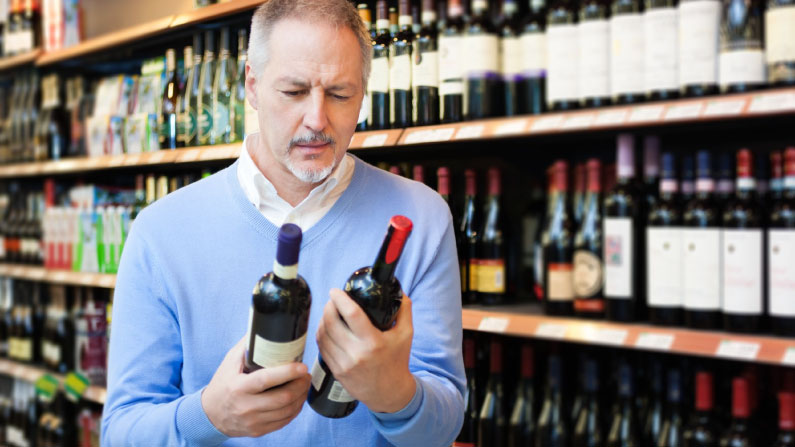Wine has long been considered a fine drink for people from all walks of life from the common man to the noble classes. People have been consuming wine since ancient times and it has been an important part of many different cultures. It is no wonder that there are many connoisseurs of fine wines who love discovering and tasting new wines, and even collecting them in their own cellars. Allowing a fine wine to age properly in a cellar will improve its taste, quality, and value over time.
Many people start collecting wine because they are hobbyists or connoisseurs who love the idea of having a cellar stocked with the finest wines. Like with any collection, many wine collectors will eventually reach a point in which they wish to sell some or all of their wine collection, ideally for a profit. Collecting the right types of wines and allowing them to age properly in a cellar can greatly increase their value so that they earn a profit when sold. However, selling rare and vintage wines that you have collected over the years is not a simple process.
If you have decided to sell all or some of your wine collection, the following guide will help you determine the best time to sell your wine, the value of your wine, and the best buyer for your wine so you can get the most profit for your collection.
When should I sell my vintage wine?
No matter when you decide to sell your wine, there should be very little difference or fluctuation in price.[/caption]
Wine is a popular auction item which means the market price of vintage wines stays relatively stable. No matter when you decide to sell your wine, there should be very little difference or fluctuation in price. The decision to sell wine rests largely with the individual wine collector. Collectors decide to sell their wine mostly when they need extra money, but they may also sell their wine if they run out of room in their cellar, have wines nearing peak maturity, or if they want to rid themselves of their current collection to build a collection of a new type of vintage wine.
- Cellar runs out of room: This happens most commonly to new collectors who purchase too many bottles right away and do not have the capacity to properly store them. If you have more wine bottles than you can store or drink, you should consider selling the wines that you are least interested in collecting or drinking.
- Need money: If you are selling your wine because you need money to buy more wine, or just need money in general, you should sell your wines that are the closest to peak maturity to get the best profit per bottle.
- Peak maturity: Collectors who view their wine collection as an investment and are seeking to make a profit sell their wines when they are approaching peak maturity. You can look up the tasting notes for your wine bottles to get a better idea of when they reach peak maturity. Selling wines the year before they reach peak maturity typically brings the highest profits.
- Want new collection: If you have become disinterested in your wine and wish to add a different selection of wines to your collection, you should consider selling the wines you have lost interest in and use the money to replenish your collection with new wine.
While the wine resale market is generally stable, there may be fluctuations in the value of different types of wines for various reasons. Make sure to do some market research to see where the value of your wine bottles currently stands. If the market for the type of wine you wish to sell is low, hold off until the market goes back up. If you plan on shipping your wine, you should avoid selling in the summer or winter months because extreme weather conditions can damage the wine. The shipping of wine is easier, safer, and more cost-effective in the spring and fall months.
Another important factor you should take into consideration when choosing when to sell your wine is seasonal popularity. Certain wines, like champagne, are in higher demand in the fall because of the approaching holiday season while rosés sell best in the spring for the summer.
How to Determine the Value of your Vintage Wine
Once you have decided which of your wine bottles you want to sell, you must then determine the value of each bottle. There are two types of values attributed to vintage wines, inherent value and real value. The inherent value of a bottle of wine is determined by how it was produced, where the grapes were grown, its classification, and the reputation and techniques of the maker. The real value is determined by its life after bottling, including how it has been stored and the number of different owners it has had. Wine bottles high in both inherent and real value bring the best prices.
The following characteristics make a bottle of wine more profitable on the market:
- Classification as a Premier Cru, Grand Cru, or regional equivalent
- Made by a highly rated producer
- Considered a high-quality vintage
- High average critic rating; no lower than 90 out of 100 or 18 out of 20
- Rare bottle; less than 100 cases made
- Stored properly in-bond
- Bought En Primeur, or while still in the barrel pre-bottling
- Kept stored in a professional warehouse
Your wine bottles are more likely to sell at a higher profit if they have at least 3 or 4 of these qualities. For instance, wines from vineyards in the same region may have drastically different values depending on the quality of the specific vineyard. A high critic rating has been known to increase the value of certain wines by about 45 percent. Wine that has been stored properly not only fetches a higher price but can also help you avoid VAT and duty taxes after the sale.
You should determine which of these qualities your wine bottles have to get a better idea of their true inherent and real value. You can ask a higher price for your wine bottles that have more of these qualities. You can also research the average price online that wine bottles like yours have sold for to help decide on an appropriate asking price.
Sell your Vintage Wine to PGS Gold & Coin
By selling your vintage wine outright to a trusted retailer like PGS Gold & Coin, you are guaranteed a fair appraisal and cash on the spot. Our professional wine buyers will carefully assess your vintage wine bottles and offer you a fair appraisal so you can sell your wine instantly for cash. This takes the hassle out of selling your wine that you may experience if you sell through an auction or online marketplace. Our knowledge of rare and vintage wines, as well as the market value for wine, helps us guarantee a fair price for your wine collection.
Visit PGS Gold & Coin at one of our locations or fill out an online form; or call us at (888) 416-2701 for more information about our wine buying process.

